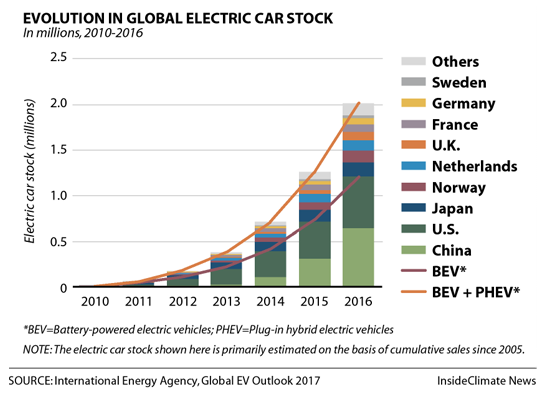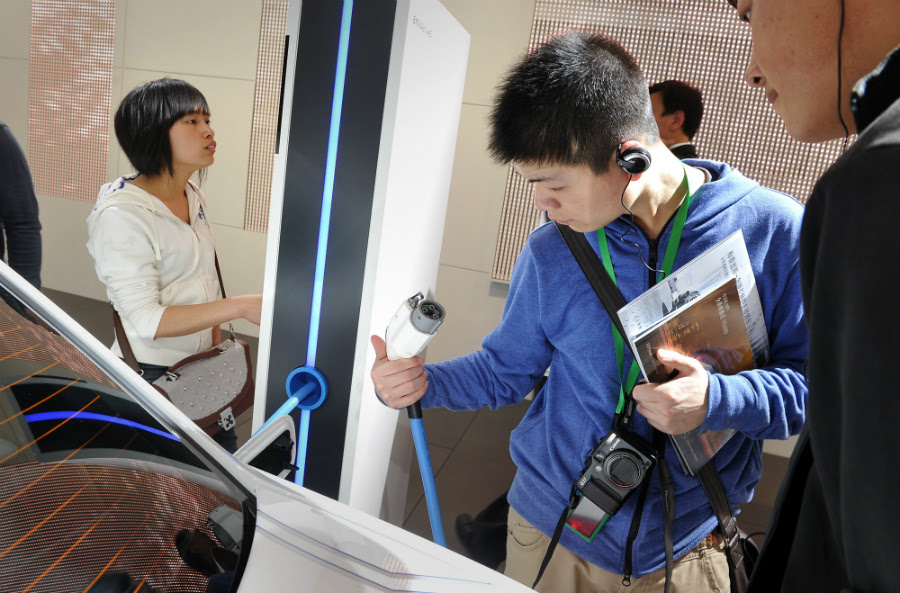|
Credit: Philippe Lopez/AFP/Getty Images
Rob Dieterich reports for Inside Climate News:
China is the world’s biggest car market, and its government has become the world’s biggest booster of electric vehicles. Those two facts go a long way toward explaining the urgency with which global automakers are rolling out electrification plans, The New York Times reports.
Beijing policymakers have a range of motivations for their electric auto embrace, from smog-choked cities to a dependence on imported oil. They also see the possibility of an expanded role for Chinese firms in a reimagined auto industry. Global automakers see a role for themselves in China’s huge auto market, which is all the motivation they need. The Times story is here.
India, meanwhile, has committed to a 2030 deadline to end the sale of new cars with internal combustion engines, but the country lags far behind China. In its biggest move to date, the government last month agreed to purchase 10,000 electric vehicles from Tata Motors.
Bloomberg points out, as evidence of the scale of the challenge India faces, that Tata doesn’t yet have a commercially available electric car. There were just 350 charging stations in India versus 215,000 in China at the end of last year, according to the Bloomberg story, here.
With the spread of electric vehicles, a related question arises: How soon might global demand for oil begin to decline? Barclays research says an EV boom and increases in fuel efficiency could cut global oil needs in 2025 by an amount nearly equal to the output of Iran.
And if electric vehicles capture a third of the global market by 2040, the lost demand would nearly equal all of Saudi Arabia’s production. InsideClimate News has the whole story, here.

KEY STAT: An estimated 814,000 electric vehicles will be sold in China in 2019, and 602,000 in the rest of the world, according to a forecast from LMC Automotive.
Like this? Use form in upper right to receive free updates
See popular posts from the last 30 days in right column —
>>
|

